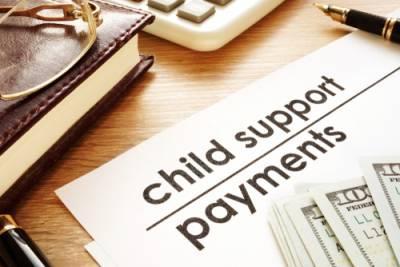Recent Blog Posts
Understanding Parental Fitness in Illinois
 A child's parents are arguably the most important individuals in his or her life. Consequently, Illinois Courts do not interfere with the parent-child relationship unless there are extreme circumstances. Parents have the right to spend time with their children and be involved in their children's lives. However, there are situations in which a parent may lose some or all of his or her parental rights. Parental unfitness can take many different forms, but the consequences of being deemed unfit are usually profound.
A child's parents are arguably the most important individuals in his or her life. Consequently, Illinois Courts do not interfere with the parent-child relationship unless there are extreme circumstances. Parents have the right to spend time with their children and be involved in their children's lives. However, there are situations in which a parent may lose some or all of his or her parental rights. Parental unfitness can take many different forms, but the consequences of being deemed unfit are usually profound.
What is an Unfit Parent?
An unfit parent is incapable or unwilling to provide for a child's basic needs and keep the child safe. Illinois law specifically states that a parent may be considered unfit if he or she:
- Abandons the child
- Neglects the child
- Mentally, emotionally, or physically abuses the child
How is Property Acquired by Inheritance Handled in an Illinois Divorce?
 When someone passes away, they often leave an inheritance to their loved ones through their estate plan. Heirs may receive money, real estate, vehicles, jewelry, or other assets from a close friend or relative who has passed away. How is this type of property handled during divorce? Do both spouses have a right to funds or property obtained through an inheritance? What if the inheritance was acquired before the couple decided to divorce? Is there a way to protect an inheritance from being split between spouses in a divorce?
When someone passes away, they often leave an inheritance to their loved ones through their estate plan. Heirs may receive money, real estate, vehicles, jewelry, or other assets from a close friend or relative who has passed away. How is this type of property handled during divorce? Do both spouses have a right to funds or property obtained through an inheritance? What if the inheritance was acquired before the couple decided to divorce? Is there a way to protect an inheritance from being split between spouses in a divorce?
Are Assets Obtained Through Inheritance Marital or Non-Marital Property?
Divorcing spouses have the right to negotiate their own property division arrangement during a divorce. If they cannot reach an agreement about who should keep what property, the Court will be forced to intervene. Illinois Courts follow equitable distribution laws when dividing property. Property acquired by either spouse during the marriage is typically considered marital property. However, Illinois law explicitly states that property acquired by inheritance is non-marital property owned solely by the spouse who inherited it. This may seem straightforward, but determining ownership rights of property originally acquired by inheritance can be complicated in certain situations.
Can My Ex Stop Me From Seeing My Child in Violation of Our Parenting Plan?
 Divorcing spouses with children are subject to a parenting plan that describes the allocation of parental responsibilities and each parent's right to parenting time. This parenting plan is incorporated into the final divorce decree and becomes a legally binding agreement. Parents cannot withhold parenting time from the other parent or otherwise deviate from the parenting plan. If your child's other parent is not letting you spend time with your child, it is important to know your rights.
Divorcing spouses with children are subject to a parenting plan that describes the allocation of parental responsibilities and each parent's right to parenting time. This parenting plan is incorporated into the final divorce decree and becomes a legally binding agreement. Parents cannot withhold parenting time from the other parent or otherwise deviate from the parenting plan. If your child's other parent is not letting you spend time with your child, it is important to know your rights.
Visitation Abuse in Illinois
Not letting a parent see his or her children in violation of a parenting plan is sometimes called visitation abuse or “abuse of allocated parenting time.” The other parent may claim that the child does not want to see you, “forget” about your parenting time, or refuse to let you pick the child up for your scheduled parenting time.
What Happens to Retirement Funds if We Get Divorced?
 If you are getting divorced, you may have many questions and concerns about the property division process. Often, the first things that come to mind when thinking about asset division are physical assets like the home and vehicles. However, valuing and dividing complex assets like retirement accounts is often more complicated and time-consuming. Whatever age you are, retirement is likely an important concern for you. Read on to learn about how retirement plans are addressed during Illinois divorce cases.
If you are getting divorced, you may have many questions and concerns about the property division process. Often, the first things that come to mind when thinking about asset division are physical assets like the home and vehicles. However, valuing and dividing complex assets like retirement accounts is often more complicated and time-consuming. Whatever age you are, retirement is likely an important concern for you. Read on to learn about how retirement plans are addressed during Illinois divorce cases.
Determining the Value of Your Retirement Plan
Divorcing couples may be able to negotiate property division and make a decision without the Court's involvement. However, regardless of whether property division is resolved through the Court or via an out-of-Court settlement, the spouses will need to determine the value of the retirement assets first. If you or your spouse have a defined contribution retirement plan like a 401(k) or 403(b), determining the value of the retirement plan should be relatively straightforward.
How Can I Divorce If I Do Not Know Where My Spouse is?
 Most people know that, like most legal matters, divorce involves paperwork. You will “serve” the divorce petition to your spouse. He or she must “respond” to the divorce petition and either agree to the proposed divorce terms or contest the divorce terms. However, some spouses are so estranged that the spouse seeking the divorce does not know where the other spouse is. Fortunately, there is a way to proceed with divorce even if a spouse is missing. Read on to learn more.
Most people know that, like most legal matters, divorce involves paperwork. You will “serve” the divorce petition to your spouse. He or she must “respond” to the divorce petition and either agree to the proposed divorce terms or contest the divorce terms. However, some spouses are so estranged that the spouse seeking the divorce does not know where the other spouse is. Fortunately, there is a way to proceed with divorce even if a spouse is missing. Read on to learn more.
Understanding the Divorce Service Process
When someone files for divorce in Illinois, he or she uses a document called a Petition for Dissolution of Marriage. This document starts the divorce process and lists the petitioner's demands. Some spouses are able to simply hand the divorce petition to their spouses. Others deliver the divorce paperwork by certified mail or hire a county sheriff to serve the petition and summons to the other spouse. However, if you do not know where your spouse lives and have no means of contacting him or her, these are not feasible options.
Five Things to Do Before You File for Divorce in Illinois
 Divorce can be complex legally, financially, and personally. Ending your marriage will likely have a profound impact on your life in a multitude of ways. Fortunately, there are steps you can take now to prepare for the divorce process and set yourself up for success.
Divorce can be complex legally, financially, and personally. Ending your marriage will likely have a profound impact on your life in a multitude of ways. Fortunately, there are steps you can take now to prepare for the divorce process and set yourself up for success.
Inventory Your Assets and Debts
One of the most consequential aspects of divorce is the division of marital assets and debts. You will need to determine who you and your spouse will divide bank account balances, real estate, vehicles, household items, retirement funds, credit card debt, and much more. Take some time to go through your financial documents and make a list of the assets you own and the debts you owe. Gather and make copies of your tax returns, pay stubs, bank statements, loan applications, and other financial paperwork.
Learn About Illinois Divorce Laws and What to Expect
Each state has different divorce laws, and these laws frequently change. It may be a good idea to research Illinois divorce laws so you will know how the process generally works. Each case is different, but this can give you a place to start. Illinois is a no-fault divorce state without a waiting period or mandatory separation period. However, at least one of the spouses must have lived in the state for 90 days to file for divorce in Illinois.
How Can I Make a Child Custody Modification in Palatine, Illinois?
 When parents divorce, the final divorce decree will contain the terms of the divorce, including child custody terms. The parents are required to follow these terms. Failure one-size-fits-all to charges for contempt of Court. However, circumstances change, and sometimes, the initial child custody terms are no longer appropriate for the situation. Read on for several frequently asked questions about modifying child custody in Illinois.
When parents divorce, the final divorce decree will contain the terms of the divorce, including child custody terms. The parents are required to follow these terms. Failure one-size-fits-all to charges for contempt of Court. However, circumstances change, and sometimes, the initial child custody terms are no longer appropriate for the situation. Read on for several frequently asked questions about modifying child custody in Illinois.
How Can I Change My Parenting Plan?
Illinois parents use a Parenting Plan or Parenting Agreement to describe how they will share parenting duties. Illinois law classifies parenting duties into two main categories: Parental responsibilities are decision-making responsibilities, and parenting time is the time a child spends with each parent.
If you wish to modify parenting time, you may do so if the modification serves the child's best interests. If you and your spouse agree on the modification, you can submit the modification to the Court for approval. If you and the other parent disagree about the proposed modification, the Court may require you to attend family law mediation. If mediation is unsuccessful and you still disagree about the parenting time modification, the Court may appoint a guardian ad litem or child custody evaluator to assess the situation and provide the Court with an informed opinion.
What is a Collaborative Participation Agreement in an Illinois Divorce Case?
 To get divorced in Illinois, spouses must address multiple financial, legal, and logistical issues. If the spouses can agree on how to handle these issues, they can avoid the timely, costly, and stressful divorce litigation process. However, reaching an informed decision about property division, child custody, and other divorce issues is very difficult to do without help. Fortunately, Illinois spouses have the option of ending their marriage through collaborative law. Collaborative divorce is an alternative resolution method that offers numerous benefits for divorcing spouses and their children. One of the key elements in a collaborative divorce is the “participation agreement” or “collaborative agreement.”
To get divorced in Illinois, spouses must address multiple financial, legal, and logistical issues. If the spouses can agree on how to handle these issues, they can avoid the timely, costly, and stressful divorce litigation process. However, reaching an informed decision about property division, child custody, and other divorce issues is very difficult to do without help. Fortunately, Illinois spouses have the option of ending their marriage through collaborative law. Collaborative divorce is an alternative resolution method that offers numerous benefits for divorcing spouses and their children. One of the key elements in a collaborative divorce is the “participation agreement” or “collaborative agreement.”
Understanding Participation Agreements in a Collaborative Divorce
As the name implies, collaborative divorce is a collaborative process. The spouses and their lawyers seek to resolve divorce issues cooperatively, without the hostility that exists in many litigated divorce cases. To ensure that everyone in the collaborative divorce process understands and agrees to the terms of the resolution process, each participant is asked to sign a participation agreement. The spouses, their attorneys, accountants, appraisers, child specialists, and others involved in the collaborative process agree to these terms.
Frequently Asked Questions About Divorcing a Spouse with Alcoholism or Drug Addiction
 The National Institute on Alcohol Abuse and Alcoholism estimates that almost 15 million people struggled with alcohol use disorder in 2019. The statics for drug use are similarly disheartening. Just under 20 percent of teens and adults use illegal drugs or take prescription medication in an unlawful manner. Many people struggling with drug addiction are addicted to opioids like oxycontin or fentanyl. If your spouse is addicted to drugs or alcohol, his or her addiction will likely influence your divorce case.
The National Institute on Alcohol Abuse and Alcoholism estimates that almost 15 million people struggled with alcohol use disorder in 2019. The statics for drug use are similarly disheartening. Just under 20 percent of teens and adults use illegal drugs or take prescription medication in an unlawful manner. Many people struggling with drug addiction are addicted to opioids like oxycontin or fentanyl. If your spouse is addicted to drugs or alcohol, his or her addiction will likely influence your divorce case.
Is Drug Addiction Grounds for Divorce in Illinois?
Each state has different divorce laws. Illinois is currently a no-fault divorce state. You will not list your spouse's addiction as the grounds for you divorce. The only available ground for divorce in Illinois is “irreconcilable differences.” If your spouse contests the divorce and disagrees that you have irreconcilable differences, living separately for at least 6 months is considered sufficient proof of irreconcilable differences.
Does Illinois Require Divorced Parents To Pay For College?
 Many parents struggle to pay for college expenses such as tuition, room and board, and related fees. In the United States, the costs associated with obtaining a college education are incredibly high, with college tuition sometimes costing upwards of six figures for four-year schools.
Many parents struggle to pay for college expenses such as tuition, room and board, and related fees. In the United States, the costs associated with obtaining a college education are incredibly high, with college tuition sometimes costing upwards of six figures for four-year schools.
No matter which college your child chooses to attend, tuition rates will likely be high. But if you are divorced in the state of Illinois, you may be wondering who pays for college between you and your ex. Do you both need to pay? Is a 50/50 division of tuition applied to a situation like this?
Illinois Law Regarding College Expenses For Non-Minor Children
Illinois imposes a rare law that may require parents to contribute equal amounts of money toward their child's college expenses until the child turns twenty-three years old. However, it is also possible for this Court order to be extended until the child turns twenty-five years old.
Introducing The Law Office of Nicholas W. Richardson
Nicholas W. Richardson is an experienced divorce lawyer and mediator whose comprehensive legal knowledge, commitment to clients and reputation for results bring lasting solutions to your problems.






